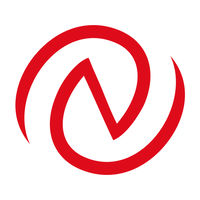Igor Golovniov/SOPA Images/LightRocket via Getty I
Drug development requires solid funding. Here’s who’s standing on higher ground this week with fresh investment dollars.
Igor Golovniov/SOPA Images/LightRocket via Getty Images
Drug development requires solid funding. Here’s who’s standing on higher ground this week with fresh investment dollars.
Janux Therapeutics
The life sciences IPO announcements keep rolling in, with Janux filing with hopes of hitting
$100 million
in its entrance onto the market. The San Diego-based company focuses on next-generation therapies built on its Tumor Activated T-Cell Engager (TRACTr) technology platform. T-cell engagers are a new class of immunotherapies that bind to a cancer cell and recruit the patient’s T-cells to attack the cancer cells. Janux plans to use the funds raised from the IPO to submit four Investigational New Drug (IND) applications to the U.S. Food and Drug Administration (FDA) in the first half of 2022. So far, the company has raised $326 million from investors since its 2017 launch.
Numab Therapeutics
Zurich-based Numab snagged about
$110 million
last week in a Series C round. Developing next-gen antibody immunotherapies, Numab’s pipeline targets cancer and inflammation. Funds will go into clinical development of lead program NM21-1480 for multiple cancer indications as well as advance a pipeline of multi-specific antibodies into clinical trials. The lead product balances potent anti-tumor immunity with a desirable safety pro targeting 4-1BB, PD-L1 and Human Serum Albumin simultaneously.
HiberCell
Focused on preventing cancer relapse and metastasis, HiberCell scooped up
$97.4 million
in fresh funds. A Series B round brought in $67.4 million, while the rest came from a debt facility with Hercules Capital. CEO Alan Rigby describes HiberCell’s strategy as “therapeutic reprogramming of the tumor immune microenvironment and modulation of innate adaptive stress responses that endow cancer cells with survival advantages.” Funds will be used to drive Imprime PGG into two new Phase II trials, as well as a first in-human Phase 1a of the company’s PERK inhibitor HC-5404.
BioTheryX
By degrading proteins, BioTheryX is creating life-saving cancer medicines. With this latest
$92 million Series E
, multiple molecular glues, PHM-based PROTACs and monovalent degraders, including BTX-1188 will be advanced toward clinical development. BioTheryX lead multi-kinase inhibitor for acute myeloid leukemia, myelodysplastic syndromes and solid tumors will also be advanced. The company’s targeted protein degradation platform utilizes the body’s own protein disposal system to remove disease-causing proteins, giving it a wide range of targets, including those previously considered “undruggable.”
Duality Biologics
New Jersey and China-based DualityBio raked in a
$90 million Series B
to accelerate its tech platform. Working in the fields of oncology and autoimmune diseases, the biotech has a pipeline of almost 10 antibodies and antibody drug conjugates. Launched in January of 2020, the company has already raised more than $120 million with big-name investors like WuXi Biologics investing in both the Series A and Series B rounds. Funds will be used to advance into preclinical research, clinical trials and pipeline expansion.
Eliem Therapeutics
Hailing from Seattle and Cambridge, CNS-focused Eliem closed on a
$60 million Series B
this week. Lead programs ETX-810 and ETX-155 and ready to advance through topline data across four indications in chronic pain, depressive disorders and epilepsy. Two preclinical programs will also be moving up the ladder. ETX-810 is a prodrug of the bioactive lipid palmitoylethanolamide for patients with diabetic peripheral neuropathic pain and lumbosacral radicular pain. Data on these two Phase 2a trials are anticipated in early 2022. ETX-155 is instantiating two Phase 2a trials for major depressive disorder and hormone-related depressive disorders.
Rapid Medical
Developing responsive, adjustable neurovascular devices, Rapid completed an oversubscribed,
$50 million Series D
to support the company’s commercial growth. Tigertriever recently scored FDA clearance for use in the treatment of ischemic stroke. A new class of clot retriever, intelligent control allows for better removal of blood clots for the 700,000 Americans affected by an ischemic event every year. The smallest version of the device is the only clot retriever able to remove clots from the more distant areas of the brain. Tigertriever 13 is not yet cleared by the FDA. Proceeds will expand commercial operations across the US and Europe and also be used to obtain regulatory approval in new areas like China.
Phanes Therapeutics
Advancing in immuno-oncology drug discovery, Phanes completed a
$40 million Series B
round. Using funds to advance preclinical programs into the clinic, the company will also expand research and clinical teams and advance its platforms – PACbody and ATACCbody. “This round of financing will accelerate our robust growth. We are excited about the opportunity of making a major impact in the immuno-oncology field,” said CEO Ming Wang. “At Phanes, our mission is to become a major source of innovation in the biopharma industry, and we are fully committed to delivering innovative therapies to patients.”
RenBio
Jumping aboard the COVID-treatment train, RenBio launched with
$24 million
to take its lead bispecific antibody into phase 1/2 trials by the end of the year. Licensed from Colombia University professor David Ho, the bispecific design can help avoid viral resistance. RenBio’s director of R&D said, “The preclinical activity shown thus far by RB-100 against many variants that have recently emerged represents a major differentiator of this molecule and provides hope that it will be a potentially far superior therapeutic option for COVID-19 going forward.” The funding will also build RenBio’s antibody-encoding delivery platform.
Haya
Taking matters to heart, Haya launched with $20 million in seed funds. Fibrotic scarring in heart tissue due to aging, disease, or damage–like after a heart attack–causes cardiac dysfunction and can be fatal. Using genome-wide expression profiling of long non-coding RNAs in mouse models of myocardial infarction, co-founder Samir Ounzain’s team identified the super-enhancer Wisper and other heart-specific therapeutic targets. Haya has its lead asset in large animal proof-of-concept studies, and it expects to be in clinical trials by the end of 2023.









